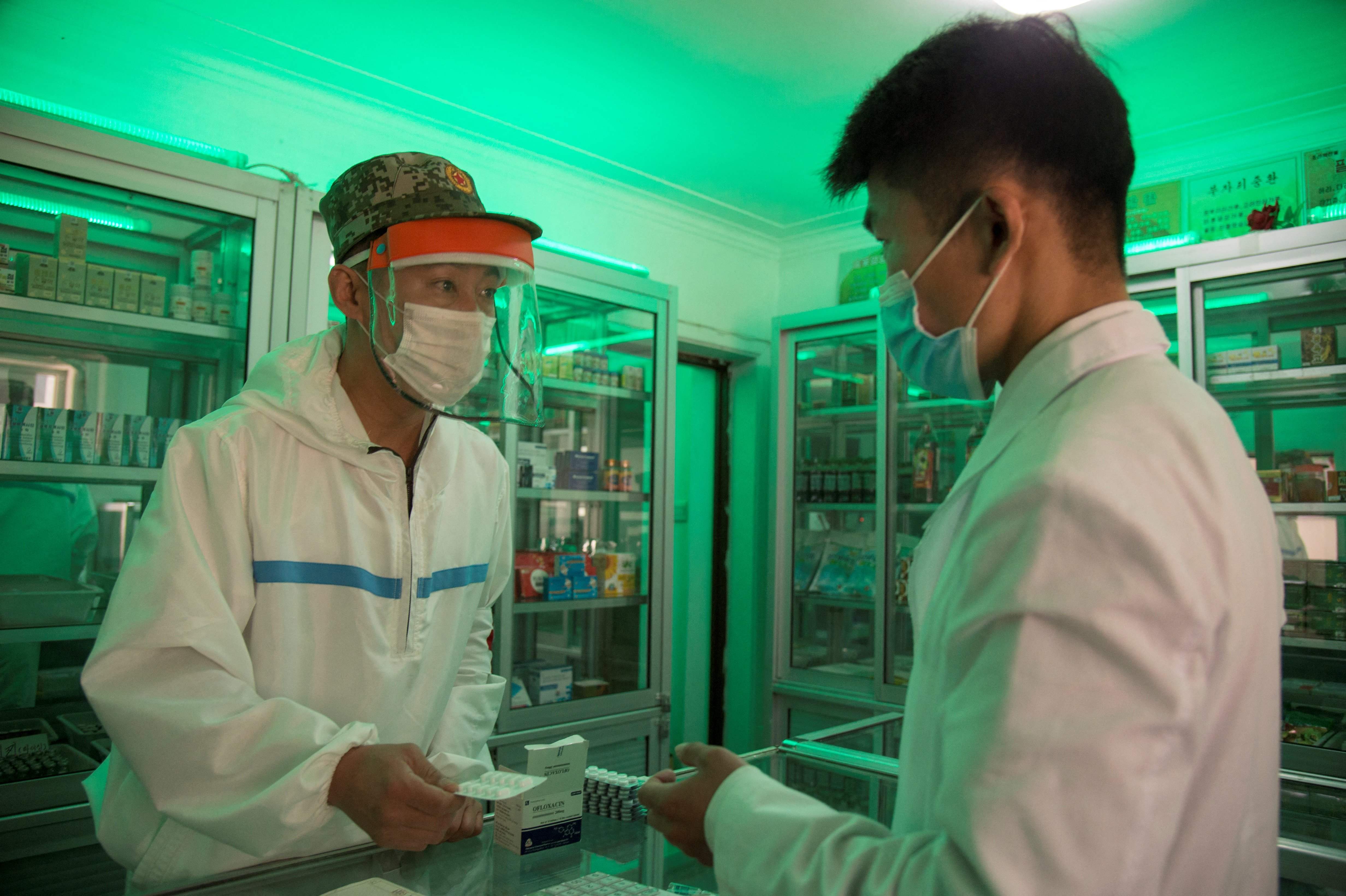WHO says North Korea’s Covid outbreak is likely getting worse
Country is believed to have a fragile health system and has conducted only 64,000 tests

The World Health Organisation has raised red flags over North Korea’s Covid outbreak, saying it may be getting worse even though the country has claimed the situation has improved.
“We have real issues in getting access to the raw data and to the actual situation on the ground,” WHO’s emergencies chief Mike Ryan said in a video briefing on Wednesday.
“We assume the situation is getting worse, not better.”
Almost three weeks after disclosing the first coronavirus cases in the country, the North Korean government said the outbreak is under control even as pandemic data remains shrouded in mystery.
Pyongyang has so far not directly confirmed how many people have tested positive for the virus, but said there were 3.8 million people with “fever” and just 70 deaths. This puts North Korea’s Covid fatality rate at 0.002 per cent, which is the lowest in the world.
Dr Ryan said the WHO has appealed to North Korea for more information about the outbreak, which is typical for countries to share so that the health organisation can evaluate public health risk.
But the WHO has not received any privileged information, he said.
“It is very, very difficult to provide a proper analysis to the world when we don’t have access to the necessary data,” he added.

The organisation has previously cast doubts about the impact of Covid on North Korea’s population, which is believed to be largely unvaccinated as it has rejected vaccines, including three million Chinese-made doses last year under the WHO’s vaccine-sharing scheme.
The country is believed to have a fragile health system and has conducted only 64,000 tests since the start of the pandemic.
Concerns have been raised as even wealthy countries were overwhelmed by shortages of medicines, beds and other health care services.
Dr Ryan said the WHO had offered technical assistance and supplies to the North Korean government multiple times, including an offer for Covid vaccines on three separate occasions.
“We really would appeal for a more open approach so we can come to the assistance of the people of [North Korea], because right now we are not in a position to make an adequate risk assessment of the situation on the ground,” Dr Ryan said.
He said the UN health agency was working with neighboring countries like China and South Korea to ascertain the extent of spread of pandemic in the North, saying that the outbreak there could have global implications.
Kim Jong-un and other government officials last week claimed that the virus is slowing and that they have managed to control Covid-19, and would soon be revising stringent anti-epidemic restrictions that were imposed when the first cases were reported last month.
“We do not wish to see intense transmission of this disease in a mainly susceptible population, in a health system that has already weakened,” DrRyan said. “This is not good for the people of [North Korea]. This is not good for the region. This is not good for the world.”
North Korea’s state media Korean Central News Agency reported that country had 96,600 “fever cases” in the 24 hours ending Thursday, taking the total cases to 3.8 million.
It was the third consecutive day the country reported less than 100,000 cases, a decline from 390,000 daily cases in mid-May, according to Soth Korean news agency Yonhap.






Join our commenting forum
Join thought-provoking conversations, follow other Independent readers and see their replies
Comments